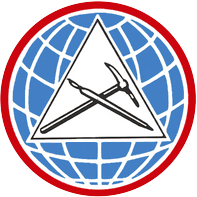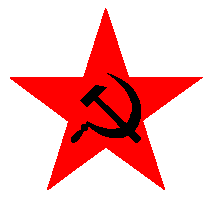
The history of Lebanon covers the history of the modern Republic of Lebanon and the earlier emergence of Greater Lebanon under the French Mandate for Syria and the Lebanon, as well as the previous history of the region, covered by the modern state.

The Progressive Socialist Party is a Lebanese political party. Its confessional base is in the Druze sect and its regional base is in Mount Lebanon Governorate, especially the Chouf District. Founded by Kamal Jumblatt in 1949, the party was led by his son Walid Jumblatt between 1977 and 25 May 2023, on 25 June 2023 the son of Walid Taymur Jumblatt was officially consecrated as leader of the PSP.

Kamal Fouad Jumblatt was a Lebanese politician who founded the Progressive Socialist Party. He led the National Movement during the Lebanese Civil War. He was a major ally of the Palestine Liberation Organization until his assassination in 1977. He authored more than 40 books centered on various political, philosophical, literary, religious, medical, social, and economic topics. In September 1972, Kamal Jumblatt received the International Lenin Peace Prize. He is the father of the Lebanese Druze leader Walid Jumblatt and the son-in-law of the Arab writer and politician Shakib Arslan.

The Lebanese Civil War was a multifaceted armed conflict that took place from 1975 to 1990. It resulted in an estimated 150,000 fatalities and also led to the exodus of almost one million people from Lebanon.

Walid Kamal Jumblatt is a Lebanese politician who was the leader of the Progressive Socialist Party from 1977 until 2023. A Druze and former militia commander, Jumblatt led the Lebanese National Resistance Front and allied with the Amal Movement during the Lebanese Civil War. He worked closely with Suleiman Frangieh to oppose Amine Gemayel's rule as president in 1983. After the civil war, he initially supported Syria but later led an anti-Assad stance during the start of the Syrian Civil War. He is still active in politics, most recently leading his party, the Progressive Socialist Party (PSP) in the 2022 Lebanese general election.

As-Sa'iqa officially known as Vanguard for the Popular Liberation War - Lightning Forces, is a Palestinian Ba'athist political and military faction created and controlled by Syria. It is linked to the Palestinian branch of the Syrian-led Ba'ath Party, and is a member of the broader Palestine Liberation Organization (PLO), although it is no longer active in the organization. Its Secretary-General is Dr. Mohammed Qeis.
The Lebanese National Movement was a front of Leftist, pan-Arabist and Syrian nationalist parties and organizations active during the early years of the Lebanese Civil War, which supported the Palestine Liberation Organization (PLO). It was headed by Kamal Jumblatt, a prominent Druze leader of the Progressive Socialist Party (PSP). The Vice-President was Inaam Raad, leader of the Syrian Social Nationalist Party and Assem Qanso of the pro-Syrian Lebanese Arab Socialist Ba'ath Party. The general secretary of the LNM was Mohsen Ibrahim, leader of the Communist Action Organization in Lebanon (CAOL).

The Amal Movement is a Lebanese political party and former militia affiliated with the Shia community of Lebanon. It was founded by Musa al-Sadr, Mostafa Chamran and Hussein el-Husseini in 1974 as the "Movement of the Deprived." The party has been led by Nabih Berri since 1980. The Greek Catholic Archbishop of Beirut, Grégoire Haddad, was among the founders of the movement.

Élias Sarkis was a Lebanese lawyer and President of Lebanon who served from 1976 to 1982.
The War of the Camps, was a subconflict within the 1984–1990 phase of the Lebanese Civil War, in which the Palestinian refugee camps in Beirut were besieged by the Shia Amal militia.

The Lebanese Forces is a Lebanese Christian-based political party and former militia during the Lebanese Civil War. It currently holds 19 of the 128 seats in Lebanon's parliament and is therefore the largest party in parliament.

The Multinational Force in Lebanon (MNF) was an international peacekeeping force created in August 1982 following a 1981 U.S.-brokered ceasefire between the Palestine Liberation Organization (PLO) and Israel to end their involvement in the conflict between Lebanon's pro-government and pro-Syrian factions. The ceasefire held until June 3, 1982 when the Abu Nidal Organization attempted to assassinate Shlomo Argov, Israel's ambassador to London. Israel blamed the PLO and three days later invaded Lebanon. West Beirut was besieged for seven weeks before the PLO acceded to a new agreement for their withdrawal. The agreement provided for the deployment of a Multinational Force to assist the Lebanese Armed Forces in evacuating the PLO, Syrian forces and other foreign combatants involved in Lebanon's civil war.

The Independent Nasserite Movement – INM (Arabic: حركة الناصريين المستقلين-المرابطون, romanized: Harakat al-Nasiriyin al-Mustaqillin) or simply Al-Murabitoun (المرابطون lit. The Steadfast), also termed variously Independent Nasserite Organization (INO) or Movement of Independent Nasserists (MIN), is a Nasserist political party in Lebanon.

The Communist Action Organization in Lebanon – CAOL (Arabic: منظمة العمل الشيوعي في لبنان | munaẓẓamah al-‘amal al-shuyū‘ī fī lubnān), also known as Organization of Communist Action in Lebanon (OCAL), is Marxist-Leninist political party and former militia in Lebanon.

The Syrian occupation of Lebanon began in 1976, during the Syrian intervention in the Lebanese Civil War, and ended on April 30, 2005, after the Cedar Revolution and several demonstrations in which most of the Lebanese people participated. The withdrawal agreement was signed by President Bashar al-Assad and Saad Hariri, son of Rafic Hariri, whose assassination triggered the series of events leading to the withdrawal.
Souk El Gharb, also spelled Suk, Sug al, ul, Suq), is a town located in the Aley District, Mount Lebanon Governorate, in Lebanon and its name translates to "Western Market".
The 8th Infantry Brigade (Lebanon) is a Lebanese Army unit that fought in the Lebanese Civil War, being active since its creation in January 1983.
The Mountain War, also known as the War of the Mountain, was a subconflict between the 1982–83 phase of the Lebanese Civil War and the 1984–89 phase of the Lebanese Civil War, which occurred at the mountainous Chouf District located south-east of the Lebanese Capital Beirut. It pitted the Christian Lebanese Forces militia (LF) and the official Lebanese Armed Forces (LAF) against a coalition of the Druze Progressive Socialist Party (PSP) and the PNSF's Popular Front for the Liberation of Palestine – General Command (PFLP-GC), Fatah al-Intifada and As-Sa'iqa backed by Syria. Hostilities began when the LF and the LAF entered the predominantly Druze Chouf district to bring back the region under government control, only to be met with fierce resistance from local Druze militias and their allies. The PSP leader Walid Jumblatt's persistence to join the central government and his instigation of a wider opposition faction led to disintegration of the already fragile LAF and the eventual collapse of the government under President Amin Gemayel.

The Lebanese Resistance Regiments (Arabic: أفواج المقاومة اللبنانية, romanized: ʾAfwāj al-Muqāwama al-Lubnāniyya, or أَمَل AMAL), also designated Lebanese Resistance Battalions, Lebanese Resistance Detachments, Lebanese Resistance Legions and Battalions de la Resistance Libanaise (BRL), but simply known by its Arabic acronym أَمَل ʾAmal which means "Hope", were the military wing of the Amal Movement, a political organization representing the Muslim Shia community of Lebanon. The movement's political wing was officially founded in February 1973 from a previous organization bearing the same name and its military wing was formed in January 1975. The Amal militia was a major player in the Lebanese Civil War from 1975 to 1991. The militia has now been disarmed, though the movement itself, now known as the Amal Movement (Arabic: Harakat Amal), is a notable Shia political party in Lebanon.

The People's Liberation Army – PLA, also known as the Armée populaire de libération (APL) in French or Forces of the Martyr Kamal Jumblatt, was the military wing of the left-wing Druze Progressive Socialist Party (PSP), which fought in the Lebanese Civil War. The PSP and its militia were members of the Lebanese National Movement (LNM) from 1975 to 1982.













